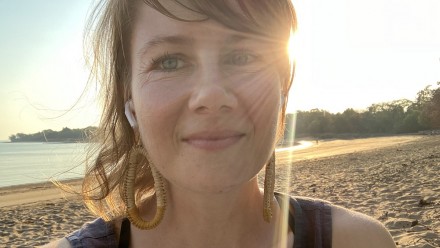Dr Nicole Vargas

Contacts
I completed my PhD in 2016 at Charles Sturt University, investigating the association between the release of IL-6 and fatiguing behaviours during self-paced exercise in different environmental conditions. I then transitioned to an industry-funded Post Doctoral position at the Unviersity at Buffalo (NY, USA), working with lululemon athletica inc to identify physiological signals that contribute to thermoregulatory behaviour in healthy adults. Following the completion of this project, I commenced a Post Doctoral position at the University of Sydney where I was project-lead for multiple category 1 funded projects (MS Research Australia, NHMRC, NIH), with a focus on understanding autonomic responses to heat stress. Our multi-site internationally collaborative NHMRC project specifically aimed to identify cost-effective and sustainable cooling strategies to mitigate the risk of heat illness during extreme heat events for the most vulnerable - especially older adults and those with cardiovascular disease.
In joining ANU, I have a keen interest to continue investigating mechanisms contributing to vulnerability to extreme heat from a physiological, behavioural, motivational, socioeconomic and cultural perspective. The intersection of these different disciplines is invaluable in framing and providing protection to the public during extreme heat events.
I maintain collaborative networks as a Research Affiliate with the University of Sydney, Faculty of Medicine and Health (FMH), and as a member of the Steering Committee and EMCR Committee of the Heat and Health Research Incubator at the University of Sydney. I am also an ANU chosen mentee for the Asia Pacific Women in Leadership Program for 2022-2023.
Research interests
I study the interactions between integrative physiology and environmental heat stress and whether particular inviduals are more vulnerable during extreme heat events due to various underlying reasons including, but not limited to: ageing, cardiovascular disease, medications, inability to access cooling or air conditioning. My human-subjects based research specifically focuses on behavioural thermoregulation - an individuals ability to acutely adapt to exertional and environmental heat stress.










